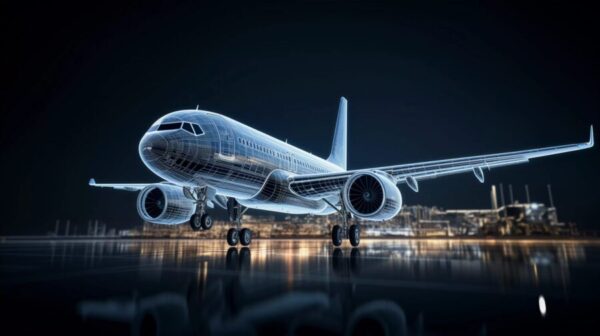The Transformative Impact of Aviation Innovations on Daily Life
As technology propels us into new realms of possibility, the aviation industry stands as a prime example of how advancements can significantly enhance our daily experiences. From redefining the way we connect with distant places to improving the comfort and safety of air travel, aviation innovations are reshaping our personal lives in profound ways. Let’s explore how these developments are revolutionizing various aspects of our existence.
1. Expanding Global Reach:
Seamless International Travel:
The era of long, tiresome journeys is fading as aviation technology evolves. Today’s advanced aircraft and efficient flight routing have transformed international travel, making it faster and more convenient. High-speed jets and optimized air traffic management mean that destinations that once felt worlds apart are now just a few hours away. This expanded reach enables you to easily attend global events, visit loved ones across continents, or embark on dream vacations with unprecedented ease.
Enhanced Connectivity:
Modern aviation fosters stronger global connections, whether for business or personal reasons. With improved flight schedules and increased frequency, staying in touch with international colleagues, friends, and family is easier than ever. The ability to bridge geographical distances enhances your professional networking opportunities and keeps personal relationships vibrant, no matter where you or your loved ones are located.
2. Revolutionizing Passenger Comfort:
State-of-the-Art Cabin Designs:
Today’s aircraft are designed to prioritize passenger comfort. Innovations such as advanced seating with personalized adjustments, improved cabin air quality, and sophisticated noise-canceling systems create a more pleasant flying experience. Features like mood lighting, ergonomic seating, and ample legroom transform long flights into a more comfortable and enjoyable part of your journey.
In-Flight Entertainment and Connectivity:
Entertainment and connectivity options have come a long way. With high-speed Wi-Fi, on-demand streaming services, and interactive entertainment systems, flights are no longer a time of boredom. Whether you’re catching up on work, streaming your favorite shows, or staying connected with friends and family, these advancements make air travel a productive and enjoyable experience.
3. Advancing Safety and Efficiency:
Cutting-Edge Safety Technologies:
Safety is a cornerstone of aviation, and continuous advancements are ensuring that air travel remains one of the safest modes of transportation. Modern aircraft are equipped with advanced safety features, including collision avoidance systems, real-time weather updates, and automated emergency protocols. These technologies enhance overall flight safety, providing passengers with peace of mind and contributing to a stress-free travel experience.
Operational Efficiency and Reliability:
Efficient flight operations are a result of innovations in air traffic control and flight management systems. Enhanced routing, better fuel efficiency, and streamlined boarding processes contribute to fewer delays and a more reliable travel experience. This efficiency allows for more predictable scheduling, helping you plan your personal and professional commitments with greater accuracy.

4. Committing to Environmental Stewardship:
Sustainable Aviation Practices:
As environmental concerns become increasingly prominent, the aviation industry is leading the charge in adopting sustainable practices. Innovations such as fuel-efficient engines, the development of alternative fuels, and carbon offset programs are helping to reduce the industry’s carbon footprint. By choosing airlines that prioritize sustainability, you contribute to a greener planet while still enjoying the benefits of modern air travel.
Future Sustainability Goals:
Looking ahead, the aviation industry is focused on achieving ambitious sustainability goals. Research into electric and hybrid aircraft, as well as the development of more eco-friendly technologies, promises to further reduce the environmental impact of air travel. Staying informed about these future advancements helps you align your travel choices with broader environmental objectives.
5. Embracing the Future of Aviation:
Innovative Technologies on the Horizon:
The future of aviation is filled with groundbreaking innovations that promise to revolutionize travel even further. Concepts such as autonomous flying vehicles, advanced air mobility solutions, and next-generation aircraft designs are set to redefine how we experience flight. These emerging technologies hold the potential to make air travel more accessible, efficient, and integrated into our daily lives.
Adapting to New Travel Paradigms:
As aviation continues to evolve, staying abreast of these developments allows you to adapt to new travel paradigms. Whether it’s embracing new modes of transportation or integrating advanced technologies into your travel plans, being informed about future trends helps you make the most of the evolving landscape of air travel.
At the End:
The impact of aviation innovations extends far beyond the confines of airports and aircraft. From enhancing global connectivity and passenger comfort to advancing safety and environmental responsibility, these advancements are transforming the way we live and experience the world. As the aviation industry continues to push the boundaries of technology, it offers new opportunities for personal enrichment and professional growth, making our journeys smoother, more enjoyable, and aligned with a sustainable future.
FAQs:
1. How are new aviation technologies enhancing global connectivity?
The latest advancements in aviation, including next-gen aircraft and streamlined flight routing, have dramatically accelerated global travel. Innovations such as smarter air traffic management and cutting-edge navigation systems now enable quicker, more efficient flights, shrinking distances and making international travel both effortless and accessible.
2. What are the most recent upgrades in passenger comfort on flights?
Modern flights are being revolutionized by a host of comfort-driven innovations. Today’s aircraft offer features like customizable seating, advanced cabin climate control, and superior noise-canceling systems. Enhanced in-flight entertainment options, including high-speed Wi-Fi and immersive media, transform the flying experience into one of relaxation and enjoyment.
3. How do the latest safety features in aviation improve flight security?
State-of-the-art safety technologies are setting new standards in aviation. Modern aircraft are equipped with sophisticated collision avoidance systems, real-time weather monitoring, and automated emergency protocols. These enhancements work in tandem to safeguard passengers and ensure a secure flying environment, giving travelers peace of mind.
4. What sustainable initiatives are currently shaping the aviation industry?
The aviation sector is making strides toward sustainability with initiatives such as ultra-efficient engines, sustainable aviation fuels, and robust carbon offset programs. Innovations like electric and hybrid aircraft are on the horizon, furthering the industry’s commitment to reducing its environmental impact and promoting a greener future.
5. What future aviation technologies are expected to transform travel?
The future of aviation is bright with revolutionary technologies like autonomous flying vehicles, advanced air mobility solutions, and electric aircraft. These advancements are set to redefine air travel, offering increased efficiency, accessibility, and new ways to integrate aviation into daily life.
6. How do advancements in aviation technology impact personal travel experiences?
The ongoing evolution of aviation technology significantly enhances personal travel experiences. From improved comfort and efficiency to more sustainable options, these innovations make flying more enjoyable and reliable. Keeping up with these developments helps travelers make informed decisions and fully enjoy the benefits of modern air travel.
7. How is the aviation industry addressing environmental challenges?
The aviation industry is proactively tackling environmental challenges through innovations such as energy-efficient engines, sustainable fuel alternatives, and comprehensive carbon offset initiatives. Future-focused research into electric aircraft and other green technologies underscores the industry’s dedication to minimizing its ecological footprint.
8. What role will aviation innovations play in future urban mobility?
Emerging technologies like flying taxis and advanced air mobility solutions are poised to revolutionize urban transportation. These innovations promise to alleviate traffic congestion, reduce travel times, and offer new, efficient ways to navigate city environments, seamlessly integrating into the urban landscape.
9. How are airlines evolving to leverage new aviation technologies?
Airlines are embracing technological advancements by integrating enhanced in-flight entertainment, improved customer service tools, and more efficient operational systems. This evolution aims to provide travelers with a superior flying experience, characterized by increased comfort, reliability, and convenience.
10. What upcoming trends in aviation should travelers be excited about?
Travelers should anticipate exciting trends such as the rise of autonomous aircraft, advanced air mobility solutions, and innovations in sustainable aviation. These developments promise to transform air travel, offering new possibilities and redefining how we experience the skies.




